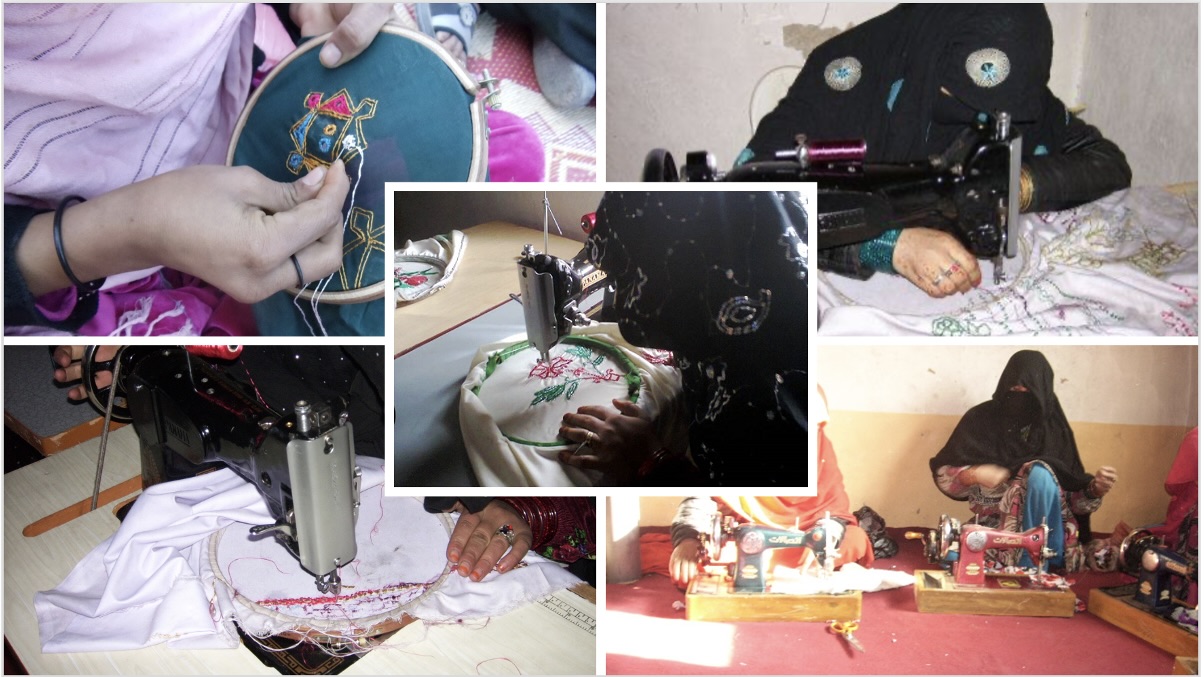Afghan women have the potential to significantly improve family economics and livelihoods by mobilizing community resources and participating in empowerment programs. Unfortunately, due to a lack of education and cultural restrictions, the majority of Afghan women and girls have been denied access to schooling. As a result, most women in rural communities are involved in agricultural and livestock activities, while a smaller number are engaged in traditional income-generating businesses.
The HRWMO has implemented a women’s empowerment project in Nuristan province, one of the poorest regions in Afghanistan. The project targets explicitly marginalized women and girls in the eastern part of the country. Nuristan has a population of around 167,000 and is divided into seven districts, making it the least populous province.

The project included training in two local design modules with cross-cutting themes to help women and girls start small home-based enterprises and have a lasting impact beyond the end of the project. The first component of the project involved training 20 women and girls in embroidery and Zardozi, along with cross-cutting issues such as adult literacy and numeracy skills, gender sensitivity, understanding of health issues and menstrual health, marketing communication, self-confidence, good governance and municipality, and citizens’ responsibility.
The second goal of the project was to provide training for women and girls in dress designing and tailoring skills. During the training, the participants received instruction on various important topics such as adult literacy and numeracy skills, gender sensitivity, understanding of health issues and menstrual health, marketing communication, self-confidence, good governance, and municipality and citizens’ responsibility. HRWMO also worked to promote women’s rights by collaborating with municipalities to provide space for women to start their businesses. The project successfully provided vocational training for 20 women and girls, as well as knowledge of women’s rights and gender equality, empowering them to advocate for their rights and participate in the community.
Furthermore, HRWMO distributed a training package to 40 women and girls who actively participated in training centers. They were equipped with new skills in dress designing, tailoring, and embroidering/Zardozi to run their small businesses in their communities.
Related Documents
For more information on this initiative, please get in touch with Wali A. Shirzad.



